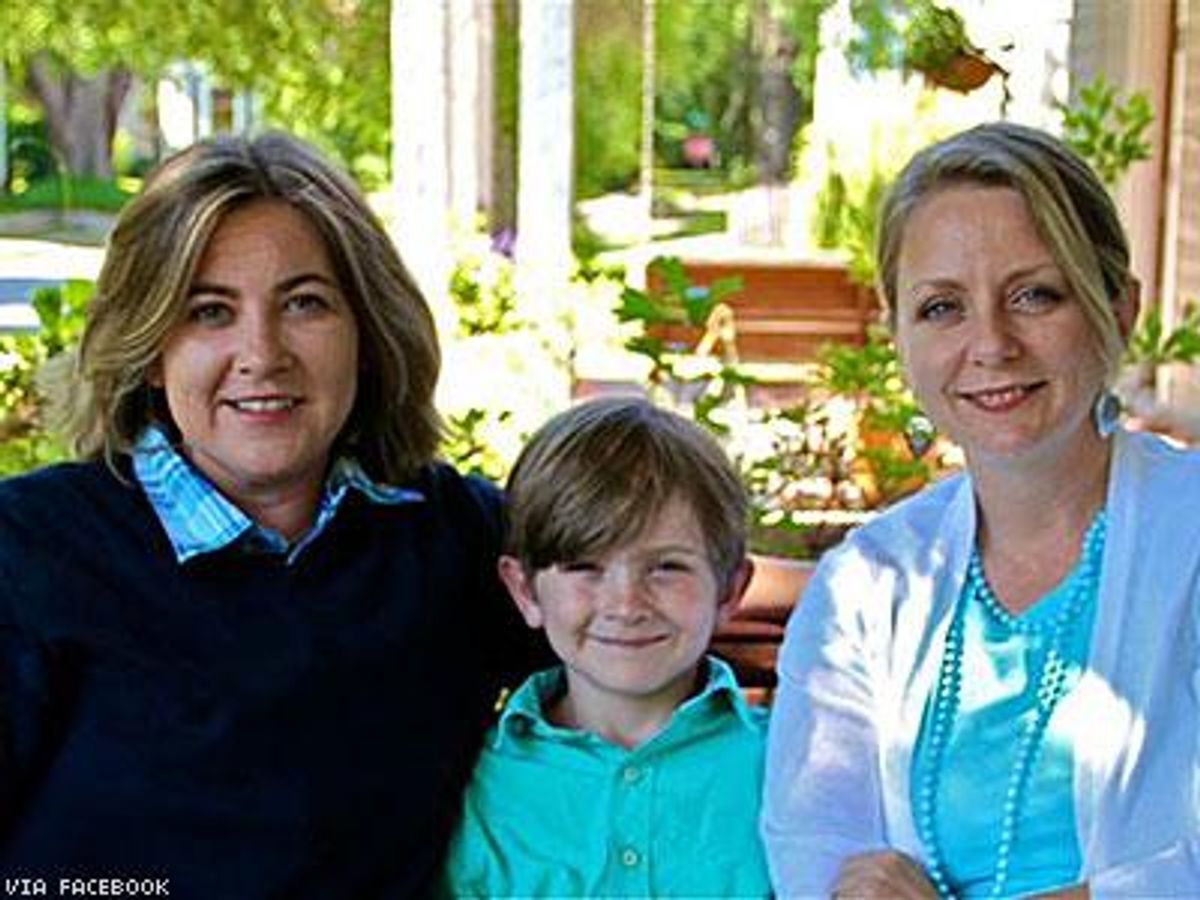The Alabama probate judge who refused to issue marriage licenses to same-sex couples until a court order forced him to do so is now being sued again -- over his refusal to process an adoption petition from the couple whose lawsuit brough down the state's marriage ban.
Mobile County Probate Judge Don Davis has refused to process a second-parent adoption petition that would allow Cari Searcy to be legally recognized as a parent to the son she and Kimberly McKeand have been raising since he was born in 2005, reports AL.com, a site for several Alabama newspapers.
McKeand gave birth to the child, who was fathered by a sperm donor who has waived parental rights, but Alabama law has not recognized Searcy's role in the boy's life, even though the women were married in California in 2008 -- a situation that led them to challenge Alabama's same-sex marriage ban, which was struck down by a federal judge last month.
Even after U.S. District Judge Callie V.S. Granade's January ruling in Searcy v. Strange(which invalidated the ban) took effect February 9, Davis initially refused to issue same-sex couples marriage licenses.
That prompted four couples to seek -- and earlier this month, receive -- guidance from the Judge Granade, explicitly ordering Davis to allow same-sex couples to marry. That clarification formally named only Davis in his capacity as Mobile County probate pudge, but probate judges across the state took the guidance to mean they too were required to begin issuing marriage licenses to same-sex couples.
Despite the end of the marriage ban, Davis is now refusing to recognize Searcy and McKeand's marriage for the purposes of a second-parent adoption, which would ensure the women's son has two legal guardians.
Davis last Friday issued what is called an "interlocutory decree," granting Searcy certain parental rights on a temporary basis, but it also included this wording: "It is further ORDERED by the Court that this Decree is qualified in nature, and the Court will not issue a final adoption order until a final ruling is issued in the United States Supreme Court on the Marriage Act cases before it."
Davis was also the same judge who denied an earlier second-parent adoption petition from Searcy by citing the marriage ban, leading to the couple's ultimately successful original suit against the ban.
Davis declined comment on the matter to AL.com, while David Kennedy, a lawyer for Searcy and McKeand, expressed exasperation.
"I'm disappointed," he told AL.com. "The United States Supreme Court made a decision with the ruling in the Searcy case [declining to extend the stay on Granade's ruling]. We don't think that it's fair or equitable to Cari Searcy to wait until the Supreme Court has ruled on some Sixth Circuit case." That case involves the Sixth Circuit U.S. Court of Appeals' ruling upholding marriage bans in Michigan, Ohio, Kentucky, and Tennessee; the court will hear it this spring.
The temporary order, he added, gives Searcy only limited protection. If McKeand were to die before a Supreme Court ruling, relatives could challenge Searcy's parental rights, and she would not necessarily get custody of their son.
"That's actually very much an open question," he said. "It's the reason we filed the [original] lawsuit."












































































